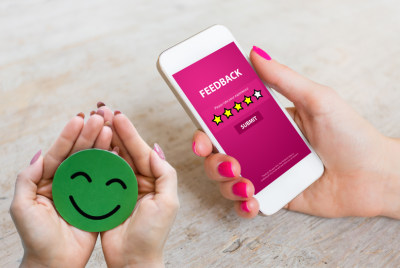Types of Funnels: Exploring the World of Sales Funnels
Sales funnels are the lifeblood of any business, guiding potential customers through a journey from awareness to conversion. In this comprehensive guide, we’ll dive deep into the fascinating realm of sales funnels, understanding the various types, their applications, and how they can supercharge your business. Whether you’re a seasoned marketer or just starting your entrepreneurial journey, this article will equip you with the knowledge to harness the power of funnels effectively.
Introduction
Imagine sales funnels as the GPS for your customers, helping them navigate through the buying process. They are structured pathways designed to lead potential customers from the initial touchpoint to the ultimate goal – conversion. The world of sales funnels is vast, comprising numerous types tailored to different business needs. Let’s embark on this journey to explore the diverse “types of funnels” that can elevate your business to new heights.
Types of Funnels
1. Top of Funnel (TOFU)
At the top of the funnel, we cast a wide net to capture as many potential customers as possible. This stage is all about generating awareness. Content marketing, social media, and paid advertising play a crucial role here. Think of TOFU as the first hello in the journey.
2. Middle of Funnel (MOFU)
MOFU is where the magic happens. At this stage, we engage and nurture potential customers. Email campaigns, educational content, and webinars are essential tools to keep them interested. It’s like a first date where you want to impress and build a connection.
3. Bottom of Funnel (BOFU)
BOFU is where the conversion takes place. Potential customers are now well-informed and ready to make a decision. This is the time for product demos, free trials, and persuasive offers. It’s like getting down on one knee with a proposal.
4. Sales Funnel
The classic sales, often synonymous with the purchase funnel, is all about guiding customers through each stage, from awareness to purchase. It’s a universal model for any business, and its principles can be adapted to suit various industries.
5. Lead Funnel
Lead funnels are all about collecting valuable information from potential customers. They aim to gather data, such as email addresses, which can be used for targeted marketing and nurturing.
6. Product Launch Funnel
When you’re introducing a new product, a product launch funnel is your go-to strategy. It builds excitement, anticipation, and ultimately drives sales on the big day.
7. Webinar Funnel
Webinars are an excellent way to engage with your audience and position yourself as an expert in your field. A webinar funnel is designed to get people to sign up for and attend your webinars.
8. E-commerce Funnel
E-commerce funnels are essential for online retail businesses. They guide users through the entire buying process, from product discovery to checkout.
9. Membership Funnel
For subscription-based businesses, membership funnels are crucial. They’re designed to attract and retain customers who pay for ongoing access to a service or product.
10. Affiliate Marketing Funnel
Affiliate marketers use this type of funnel to promote products and earn commissions on sales. It involves creating content that drives traffic to affiliate offers.
11. Survey Funnel
Survey funnels are a clever way to gather data and insights about your audience while offering them something of value in return. This type of funnel often leads to increased engagement and conversions.
12. Automated Webinar Funnel
Automated webinars allow you to reach a global audience at their convenience. This funnel automates the process of delivering webinars, making it a valuable tool for businesses that operate internationally.
13. Application Funnel
Application funnels are commonly used by high-ticket service providers. They guide potential clients through an application process, ensuring that only qualified leads proceed.
14. Launch Funnel
When launching a new product or service, a launch funnel is instrumental in creating buzz and driving sales. It typically includes pre-launch, launch, and post-launch phases.
15. Tripwire Funnel
A tripwire funnel entices customers with an irresistible low-cost offer, and once they’re in, the goal is to upsell them to more expensive products or services.
16. Two-Step Funnel
The two-step funnel separates the sales process into two stages. First, it captures leads, and then it follows up with an offer. It’s a gentle approach to move potential customers down the funnel.
17. High-Ticket Funnel
Selling high-ticket items or services requires a different approach. High-ticket funnels are designed to build trust and relationships before asking for a significant commitment.
18. Free + Shipping Funnel
This funnel offers a product for free, with customers only paying for shipping. It’s a clever way to introduce customers to your products while covering your costs.
19. Lead Magnet Funnel
Lead magnets are valuable resources offered in exchange for contact information. This type of funnel is about attracting leads and nurturing them.
20. Squeeze Page Funnel
Squeeze pages are designed to capture leads through a concise, compelling offer. They’re an essential part of list building and can be a starting point for various other funnel types.
Frequently Asked Questions (FAQs)
FAQ 1: What is the purpose of a sales funnel?
A sales funnel’s purpose is to guide potential customers through a structured journey from awareness to conversion. It helps businesses streamline the customer acquisition process.
FAQ 2: Are there different types of funnels for different industries?
Yes, the types of funnels can vary based on the industry and business goals. What works for an e-commerce store might not be suitable for a B2B service provider.
FAQ 3: Do I need a specific type of funnel for my business?
The type of funnel you need depends on your business goals and target audience. Understanding your customers and their journey is crucial in choosing the right funnel.
FAQ 4: How can I optimize my funnel for better results?
Optimizing a funnel involves A/B testing, tracking metrics, and continuously improving the user experience. You can also use tools like email marketing and analytics to fine-tune your funnel.
FAQ 5: Can I use multiple funnels simultaneously?
Yes, many businesses use a combination of funnels to cater to different segments of their audience or achieve various objectives.
FAQ 6: What role does content play in funnels?
Content is a critical component of funnels. It educates, engages, and persuades potential customers as they progress through the stages of the funnel.
Conclusion
In the dynamic world of marketing, understanding the “types of funnels” is like having a toolkit with various specialized instruments. Each funnel type is designed to meet unique needs, whether you’re focused on generating leads, launching a product, or selling high-ticket items. To succeed in the competitive landscape of the digital age, it’s essential to adapt and utilize these funnels strategically.
So, which funnel is right for you? The answer lies in your business objectives and your audience’s preferences. Remember that the customer’s journey is not linear, and flexibility in adapting your funnel strategy is key to success. Now, armed with the knowledge of these diverse funnel types, you’re ready to chart a course towards higher conversions and business growth.
As you delve deeper into the world of funnels, keep in mind that they are not static; they can be adapted and fine-tuned to fit your unique business needs. So, go ahead, explore, experiment, and watch your business flourish through the power of well-crafted funnels. Happy funneling!




